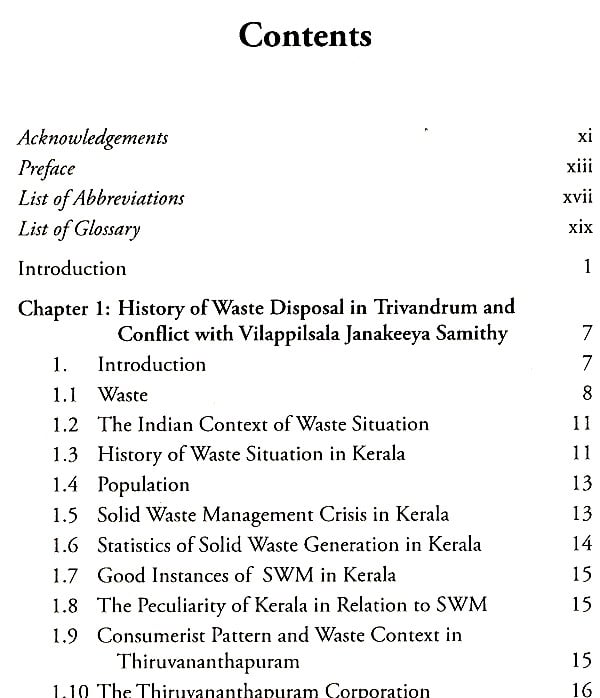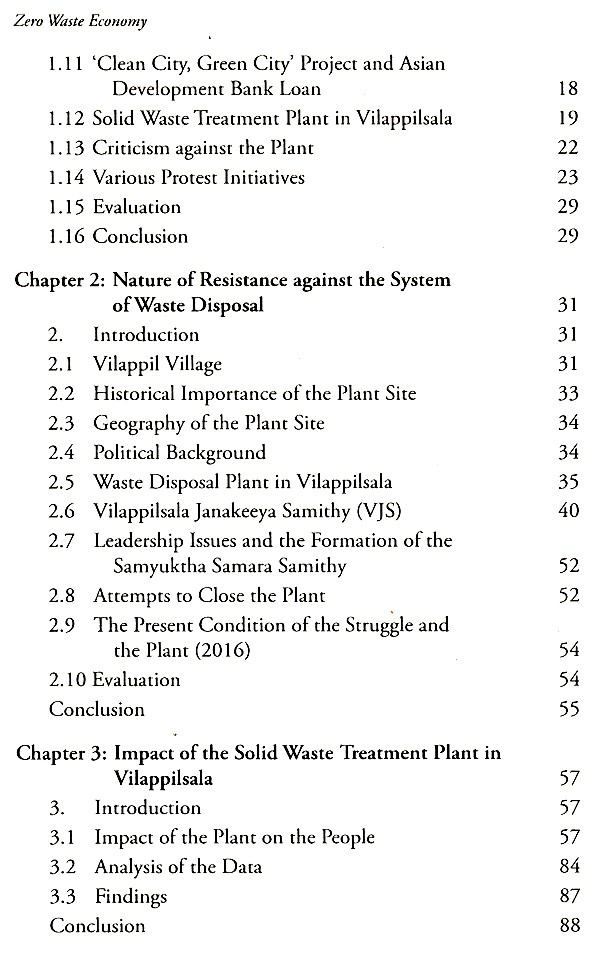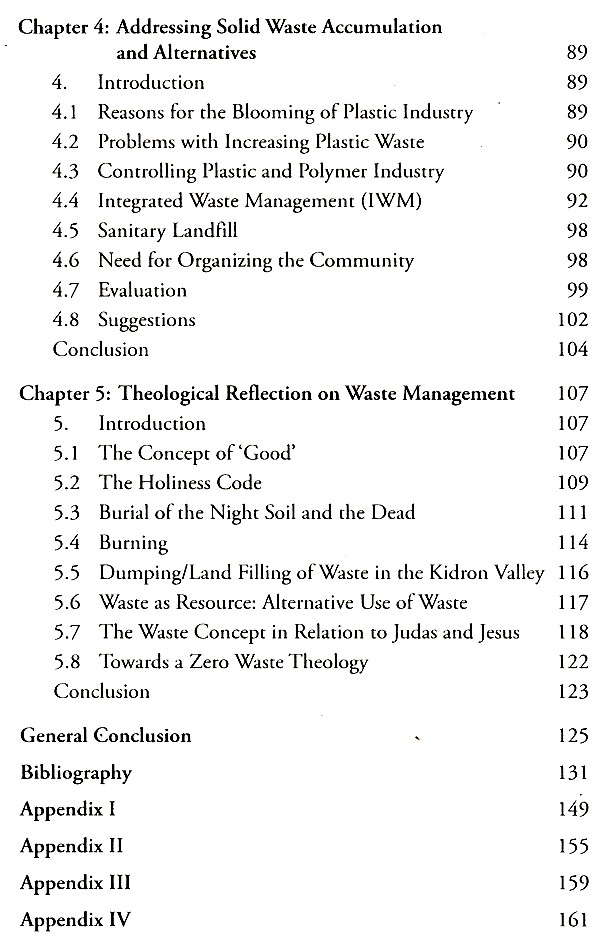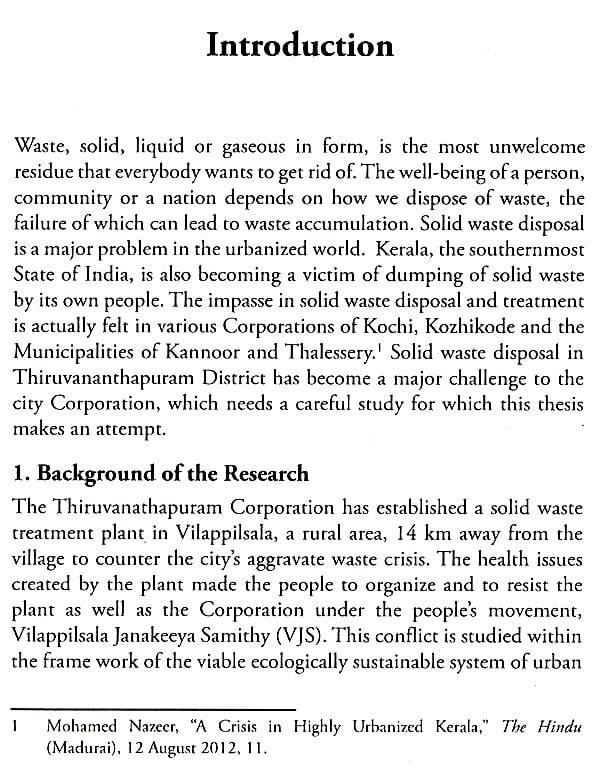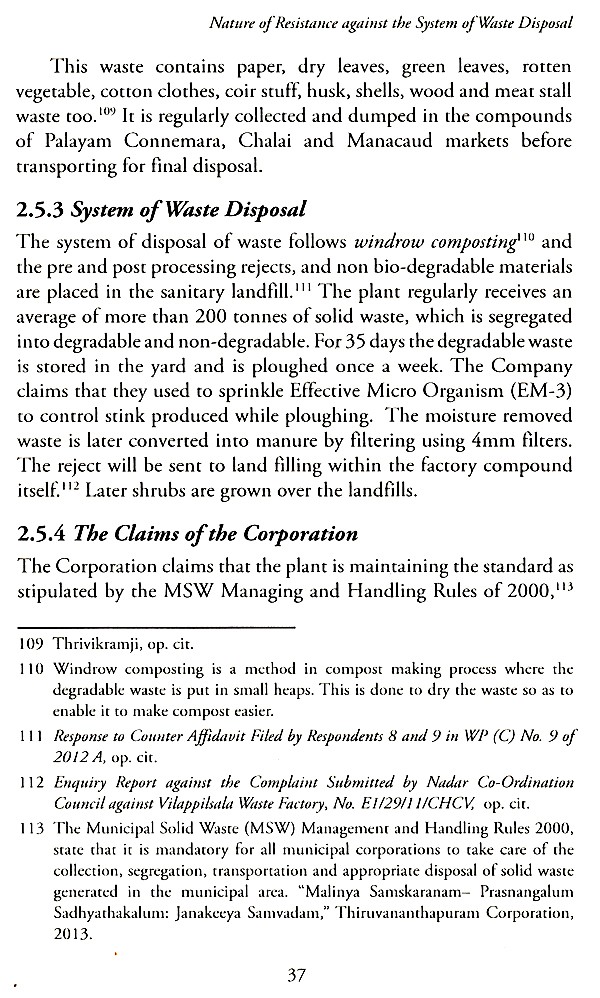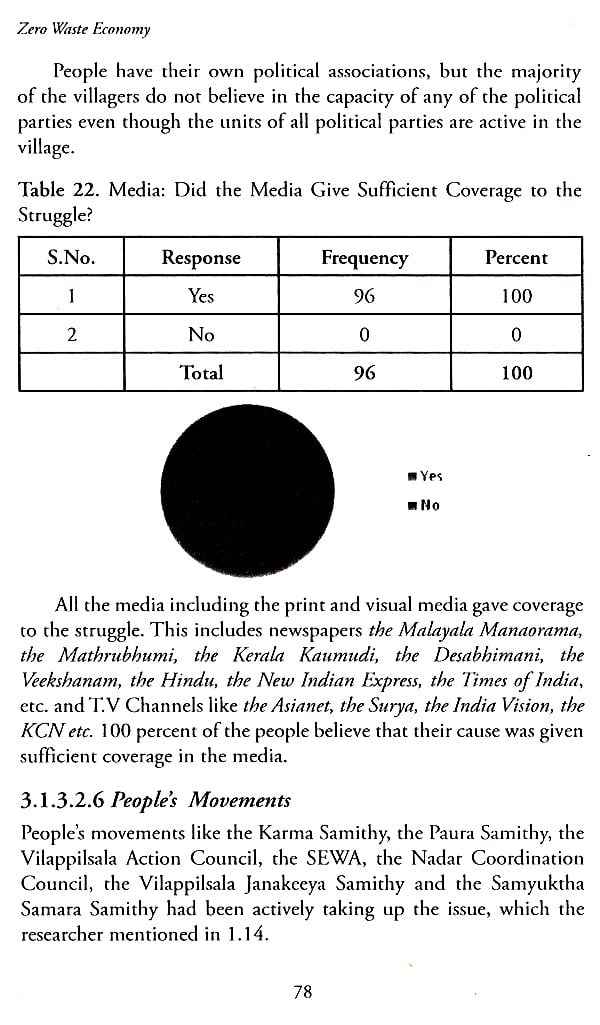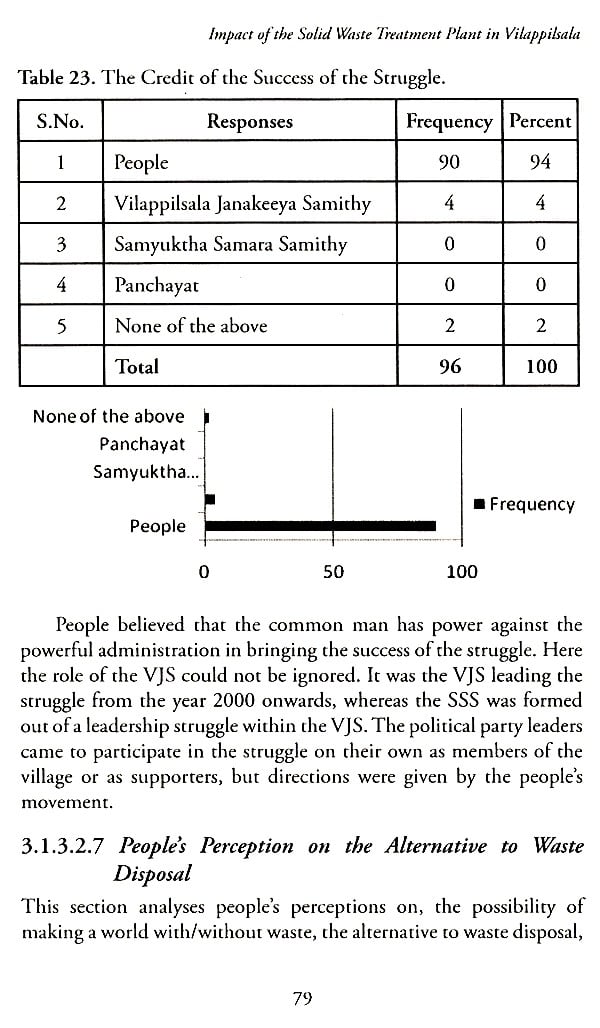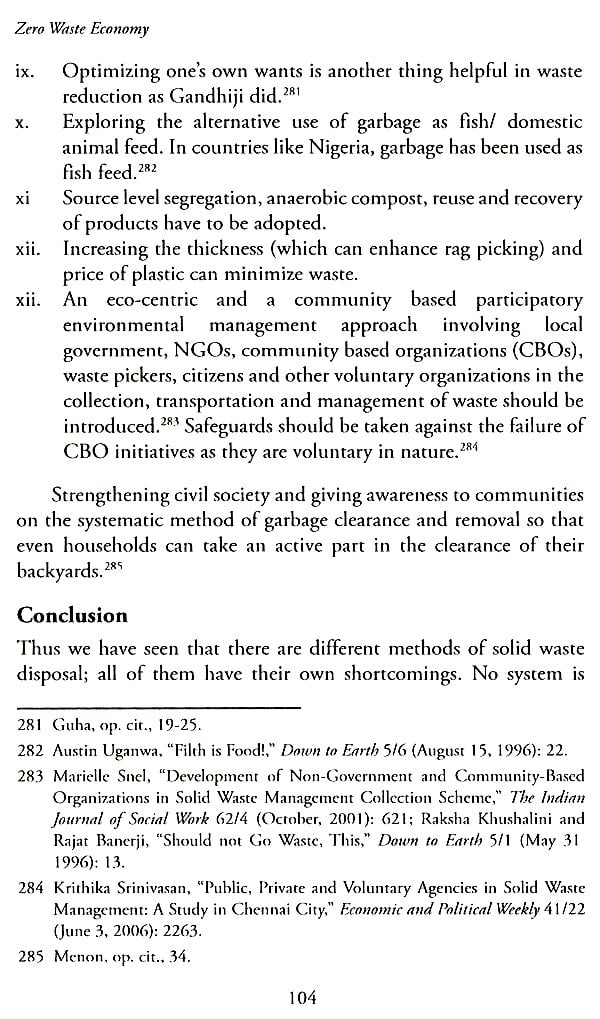
Zero Waste Economy: Theological Insights for Urban Sustainable Waste Management
Book Specification
| Item Code: | UBA188 |
| Author: | R. Shibu Mayam |
| Publisher: | Christian World Imprints, Delhi |
| Language: | English |
| Edition: | 2016 |
| ISBN: | 9789351481454 |
| Pages: | 157 |
| Cover: | HARDCOVER |
| Other Details | 9.00 X 6.00 inch |
| Weight | 420 gm |
Book Description
The Thiruvananthapuram Corporation wanted to get rid of the issue of waste accumulation by selecting a rural place, Vilappilsala, for the construction of a waste treatment plant. Topographically the place is unfit for the plant because of its proximity to a low lying water source which became unfit even for cattle washing. In this context the Vilappilsala Janakeeya Samithy (VJS), a people's movement, mobilized the people and intensified the struggle which ultimately led to the closure of the plant. This book Zero Waste Economy: Theological Insights for Urban Sustainable Waste Management is an attempt to study the conflict between VJS and the Corporation on the question of waste disposal. The author made use of the quantitative method under which questionnaires were distributed and interviews done with the villagers and the Corporation authorities to find out the real facts, and the data collected was codified and analysed under Houtart's Method of Social Analysis.
**Contents and Sample Pages**

